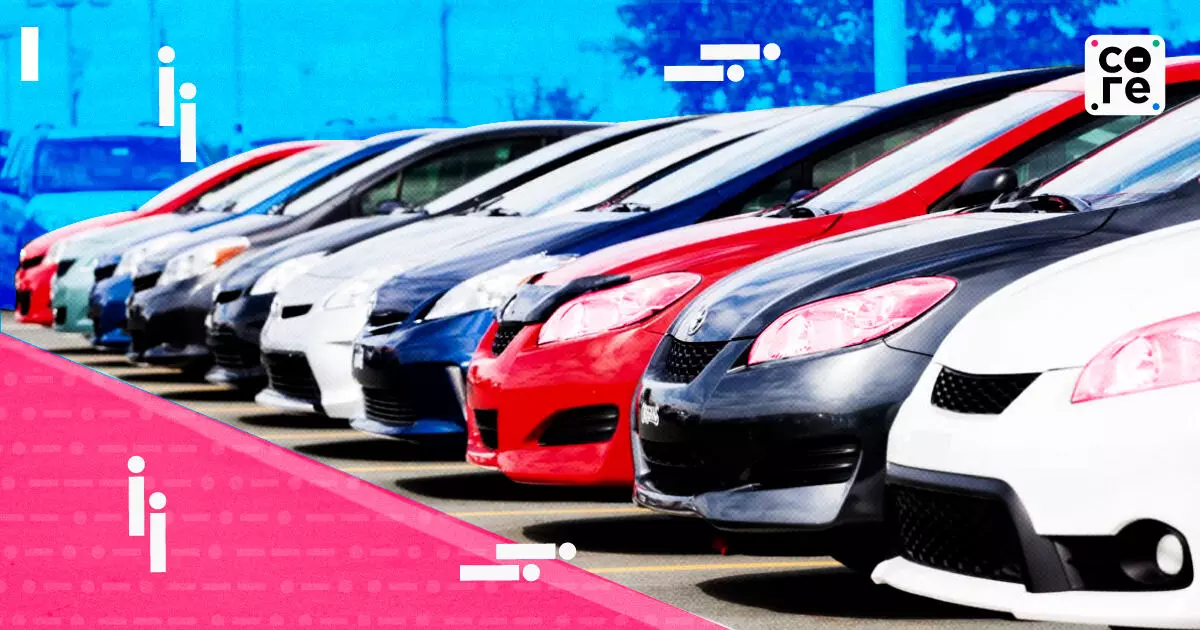
The Auto Industry Is In For A Perfect Storm In 2025
In 2025, the auto industry is set to face a perfect storm: slowing sales, costly EV shifts, consolidation, and rising competition from outsiders.

The year 2025 is set to shake up the automotive industry as we know it. The early symptoms were already visible in 2024 — auto sales slowed down in markets like India, German auto giants like Volkswagen cut back on business and now Japanese automakers Nissan and Honda are reportedly in talks for a merger.
Nissan Motor Co. is fighting for its life, reported Bloomberg and is now headed into the arms of Honda Motor Co. to pool resources in an alliance that could rival Toyota Motor Corp. Nissan, a prominent Japanese auto brand, was hit by weak sales in the US and China that triggered a huge profit slump, forcing it to cut jobs and a fifth of its manufacturing capacity.
Nissan launched the world’s first mass-market electric vehicle (EV) — the Leaf — in 2010. However, it was never able to capitalise and create a global model like Toyota did with its Prius hybrid. Now, Nissan doesn’t have the EVs or the hybrids to compete in either the US or China.
Churn In The Auto Industry
Volkswagen plans to shut at least three factories in Germany, lay off tens of thousands of staff, shrinking its remaining...
The year 2025 is set to shake up the automotive industry as we know it. The early symptoms were already visible in 2024 — auto sales slowed down in markets like India, German auto giants like Volkswagen cut back on business and now Japanese automakers Nissan and Honda are reportedly in talks for a merger.
Nissan Motor Co. is fighting for its life, reported Bloomberg and is now headed into the arms of Honda Motor Co. to pool resources in an alliance that could rival Toyota Motor Corp. Nissan, a prominent Japanese auto brand, was hit by weak sales in the US and China that triggered a huge profit slump, forcing it to cut jobs and a fifth of its manufacturing capacity.
Nissan launched the world’s first mass-market electric vehicle (EV) — the Leaf — in 2010. However, it was never able to capitalise and create a global model like Toyota did with its Prius hybrid. Now, Nissan doesn’t have the EVs or the hybrids to compete in either the US or China.
Churn In The Auto Industry
Volkswagen plans to shut at least three factories in Germany, lay off tens of thousands of staff, shrinking its remaining plants in Europe's biggest economy as it plots a deeper-than-expected overhaul, Reuters reported in October.
Right now, Volkswagen unions are facing off against the management but it looks like there will be no return to the glorious past.
In the past, it was auto companies launching new models that determined market trends, today a mobile manufacturing company, for instance, is planning to make cars.
Reports also suggest that Foxconn, best known for making mobile phones for Apple, wants to wade into the Nissan and Honda party.
Which means the auto industry is in itself not what we knew of it, Foxconn being just the latest example.
Back in India, sales have been slowing steadily with manufacturers finally cutting back production to allow for dealerships to reduce their inventories, now down to around 60-65 days from the peak of more than 80 days two months ago.
Be that as it may, electric car vehicle sales, after shooting up encouragingly in the early days, are now slowing down with hybrids selling more.
Problems That Lie Ahead
There is a bigger problem. Entry-level cars, particularly the kind made by Maruti, have slowed the most, as the company has acknowledged in recent interactions with analysts and the media. One reason is rising prices. Cars that cost around Rs 6.5 lakh four years ago now cost around Rs 10-11 lakh, dealers have told me in recent months.
Another problem is that affluent customers are driving demand for high-end automobiles — and for matter most premium products — while lower segments have remained stagnant. This reflects a deeper problem of income distribution in the economy and not just high prices.
The problem that lies ahead for manufacturers is that while people continue to buy cars, demand will grow at a very slow, maybe single-digit, rate in the foreseeable future.
On the other hand, car makers in India are betting high on electric.
If SUVs (sport utility vehicles) were the flavour of 2024, EVs may turn out to be the big theme for 2025. Automakers are gearing up for some 15 to 20 EV launches in the coming year, doubling from a modest seven to eight in 2024, reported the Business Standard.
This means that car makers have to invest huge sums to add capacities for electrics and hybrids if they want to compete there. Conversely, the capacity to make internal combustion engine cars may not be utilised fully.
This is to put things mildly. A lot of manufacturing capacity will likely lie idle till it is converted into electric or hybrid.
This has the making of a perfect storm for the auto industry. The coming year promises to be exciting and challenging in more ways than one.
In 2025, the auto industry is set to face a perfect storm: slowing sales, costly EV shifts, consolidation, and rising competition from outsiders.

